-
Practicing Good Eye Health
Good eye health is essential for your quality of life. Unfortunately, many people take their vision for granted until they experience problems. One of the best ways to promote good eye health is to make an appointment with an eye doctor each year for an exam. When you visit the ophthalmology practice in Chicago, the ophthalmologist will do much more than update your vision correction prescription as needed.
As you’ll learn when you watch this video, your ophthalmologist will also check for the early signs of eye health problems such as macular degeneration, diabetic retinopathy, and glaucoma. These are the three leading causes of vision loss in the U.S. The eye doctor in this video explains how these problems develop. If you’re concerned about your risk of eye diseases, talk to your ophthalmologist about ways of managing your risk.
-
What Is Dry Eye?
Dry eye is extremely uncomfortable, and when left untreated, can lead to chronic pain, eye ulcers, and corneal scarring. See your eye doctor for dry eye treatment in Chicago to prevent long-term complications and chronic discomfort.
Dry eye occurs when the eye either doesn’t produce an adequate amount of tears or produces tears that evaporate too quickly. This causes inflammation that can make it difficult to look at a computer screen, watch television, or read. With dry eye, patients experience stinging, burning, the feeling of sand in the eyes, redness, inability to cry, and decreased tolerance for dry environments. There are many different causes, ranging from medications to certain eye diseases.
There are a number of different ways your doctor can treat dry eye. Sometimes, switching medications can be the solution. Other patients benefit from eye drops and nutritional supplements. In rare cases, eye surgery to prevent premature tear evaporation could be helpful. Your eye doctor will devise a dry eye treatment plan based on the root cause of your symptoms.
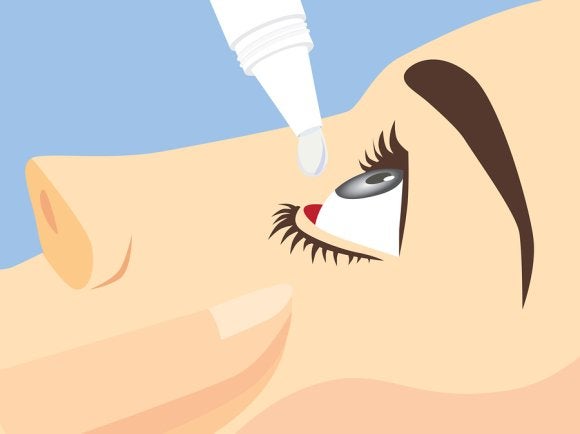
-
Recognizing Healthy Vision Month
Every May, the National Eye Institute celebrates Healthy Vision Month to remind people of all ages to stop and pay attention to their eye health. After all, while you may see your doctor for an annual physical, many people only see an eye doctor when they have an issue, which means you could be missing out on important preventative care. Take the time now to make an appointment with your eye doctor in Chicago, and focus on your eye health with these important tips.

Find Out Your Family History
Did you know that many eye diseases are hereditary? Understanding your family’s eye health history will help you and your eye doctor determine which diseases could happen to you. Because many conditions that cause blindness run in families, knowing your risks can help your eye doctor make important decisions about screening tests and treatments that are right for you.
Live an Eye-Healthy Lifestyle
Many of your everyday habits can impact your eye health. Smoking can cause a number of different eye problems, including cataracts and macular degeneration, so don’t pick it up, or ask your doctor for help quitting if you are currently a smoker. Eat a healthy diet with plenty of vitamin-rich foods. If you have a chronic condition that impacts your eyes, like diabetes, follow your treatment plan closely. Wear sunglasses to avoid eye damage from UV exposure, and wear protective eyewear when necessary on the job and in sports.
Get Regular Eye Exams
Many eye conditions don’t have symptoms in their early stages, which means you could miss an important window of treatment opportunity. Your eye doctor can diagnose and treat these conditions by identifying them during an annual eye exam. Be sure to have a dilated eye exam when recommended by your doctor. Dilated exams let your eye doctor see the back of your eye to better evaluate your eye health. Eye exams are also important for verifying the effectiveness of your current vision correction treatments, like eyeglasses, and make adjustments to your prescriptions as needed.
-
Get the Facts on Sports Eye Injuries
Eye doctors in Chicago and across the country often recommend that patients wear protective eyewear while playing sports in order to prevent or lower the risk of serious eye injuries. An eye injury can cause permanent damage to your eye, and may necessitate a visit to an ophthalmologist for emergency eye care or eye surgery. Here is a look at some important facts about sports eye injuries and maintaining eye care while playing sports.
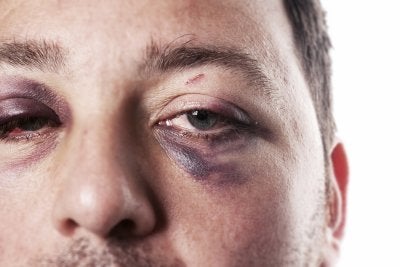
Understanding Common Sports-Related Eye Injuries
The most common causes of sports-related eye injuries are fast moving balls, swinging clubs or bats, and aggressive contact between players. The sports that result in the most eye injuries are high-contact sports such as basketball, baseball, and racquet sports. A sports-related eye injury can be blunt, penetrating, or radiating. Regardless of how minor an injury seems, it’s crucial that you visit an ophthalmologist or eye doctor as soon as possible to evaluate the extent of the injury and receive appropriate eye care.
Preventing Injuries While Playing Sports
Eye doctors, opticians, and ophthalmologists recommend that everyone wear protective eyewear when participating in any type of sporting event. The eyewear that your doctor recommends will depend upon whether the sport is high-risk, moderate-risk, or low-risk. Eyeglasses and sunglasses are not appropriate protective eyewear, and if you wear contact lenses, you’re at a higher risk of a serious eye injury. Your optical center might carry certified safety eyewear that is appropriate for the sport you play. If they don’t, your eye doctor can refer you to a sporting goods store or specialist for protective eyewear.
Recognizing When Emergency Eye Care Is Necessary
Not every eye injury necessitates emergency eye care. If you sustain an eye injury that results in sudden vision loss, severe pain in or around the eye, bulging or swelling of eye tissues, double vision, excessive discharge or tearing, or new or extreme floaters, halos, flashes, or streaks of light, visit an optical center for emergency eye care. Your eye doctor or ophthalmologist will perform diagnostic tests to determine whether you’ll need eye surgery.
-
Spotlight on Workplace Eye Wellness Month
How often do you think about eye care ? It’s possible that this topic may rank low on your health priority list—after all, you probably only visit an eye doctor in Chicago when you need a new prescription for your contact lenses. However, your sight is critically important in living your everyday life. This month, remember to care for your eyes in every aspect of your life, including your time at the workplace.
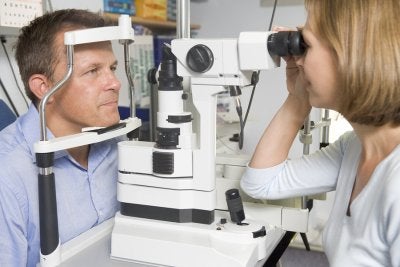
Eye Protection in the Workplace
One of the easiest things you can do to prevent eye injuries in the workplace is to wear eye protection, even if you think you’ll be fine without it. Many eye injuries in the workplace are caused by chemical splashes or small particle abrasion, including small pieces of flying metal or wood. Not only could such an injury require eye surgery, or worse, cost you your eyesight, it could also be incredibly expensive. According to the United States Department of Labor, work-related eye injuries have a price tag of over $300 million per year resulting from lost production time, medical expenditures, and compensation for employees. Finally, if you’re a healthcare worker, it’s important to remember that proper eye protection can prevent infectious diseases from being transferred through the membrane of the eye.
Eye Strain Prevention
If you work in an office setting, there are still some eye care factors that you need to consider. Overexposing your eyes to computer, tablet, and smartphone screens can cause eye strain, headaches, and lower your productivity. The main reason for this is that when people focus on digital screen devices, they tend to blink less than normal, causing the eyes to become dry and strained. You can prevent the symptoms of eye strain by remembering to blink frequently. If you feel your eyes need additional moisture, use artificial tears or an air humidifier. In addition, be sure your eyes are not too close to the computer screen. Keeping it about two feet (or more) away from your eyes should also help in reducing eye strain. Lastly, take frequent breaks to allow your eyes to adjust and refocus.
-
The Cataract Surgery Process
Cataract surgery is a safe and straightforward process that will improve your vision and help you lead a normal lifestyle. Cataracts cause the eye lenses to become cloudy, preventing light from reaching the eye, and hindering normal vision. Cataracts usually occur in older adults, and they are especially common in those with diabetes. Fortunately, your ophthalmologist in Chicago can reverse this condition and improve your vision with cataract surgery.
The cataract surgery process begins with an evaluation by your eye doctor. He or she will perform several tests to see how severe your cataracts are. Then, the optician will explain the cataract treatment process to you, along with its risks.
With your consent, the eye doctor will begin the surgery by giving you a local anesthetic. He or she will break up your clouded lens using sensitive ultrasound vibrations and remove it using suction. Finally, the doctor will replace the old lens with a new, artificial one. Upon your request, this new lens can be modified to give you better vision than you’ve ever had before.
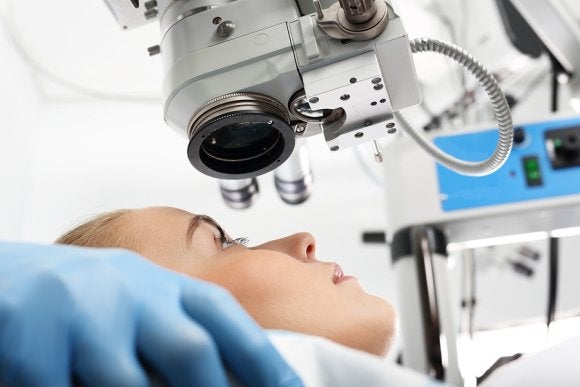
-
A Look at the Importance of Safety Eyewear
Eye injuries can necessitate costly eye care or even eye surgery from an ophthalmologist in Chicago . Wearing safety eyewear in your home, workshop, garage, yard, or workplace can protect your eyes from injury and damage. Your eye can sustain significant injury from airborne chemicals, dust, and debris, so it’s important to protect yourself from potential harm.
Watch this video to learn more about the importance of safety eyewear. You’ll learn about the safety risks in the home and workplace that can cause serious injury. Taking the necessary eye care precautions can significantly reduce your risk of injury and damage to your eye.
-
Focus on Eye Injury Prevention
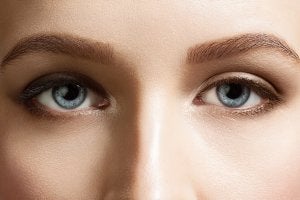 Because October is eye injury prevention month, your eye doctor in Chicago may give you certain eye care tips. These tips will help you reduce your risk of suffering from a painful eye injury in or out of your home. Eye injuries often necessitate costly visits to an ophthalmologist for eye care or eye surgery, and some injuries can be permanent or debilitating. Here are some key eye injury prevention tips.
Because October is eye injury prevention month, your eye doctor in Chicago may give you certain eye care tips. These tips will help you reduce your risk of suffering from a painful eye injury in or out of your home. Eye injuries often necessitate costly visits to an ophthalmologist for eye care or eye surgery, and some injuries can be permanent or debilitating. Here are some key eye injury prevention tips.In Your Home
If you’re cleaning your home with any hazardous or dangerous cleaning products, exercise extreme caution. Such products include bleach, ammonia, and specialty cleansers. Do not mix any products together without first consulting a professional, and use all products in a well-ventilated area. When using any airborne products, such as bug spray, hairspray, body spray, be sure the nozzle of the spray is pointed away from your face, or that your eyes are closed or you’re wearing eye protection.
In Your Garage or Workshop
If you’re using power tools, it’s essential that you wear protective eyewear, such as safety goggles. Safety goggles will protect your eyes from dust and sawdust, flying particles and debris, and broken pieces that may become airborne as a result of faulty equipment. In your garage, you may be subject to harmful fumes, chemicals, and sparks that can cause damage to your eyes. If you’re working on your car, wear protective eye gear to ensure that you won’t suffer from an eye injury.
In Your Yard or Garden
Lawnmowers and other lawn and gardening equipment can launch rocks and other small pieces of debris into the air. Wear safety goggles to prevent these projectiles from injuring your eyes. If you’re spraying your garden with insecticide or other chemicals, always point the nozzle of the spray bottle away from your face, and wear protective eyewear. If you’re playing sports or games in the yard, protect your eyes from flying balls or other sports equipment.
